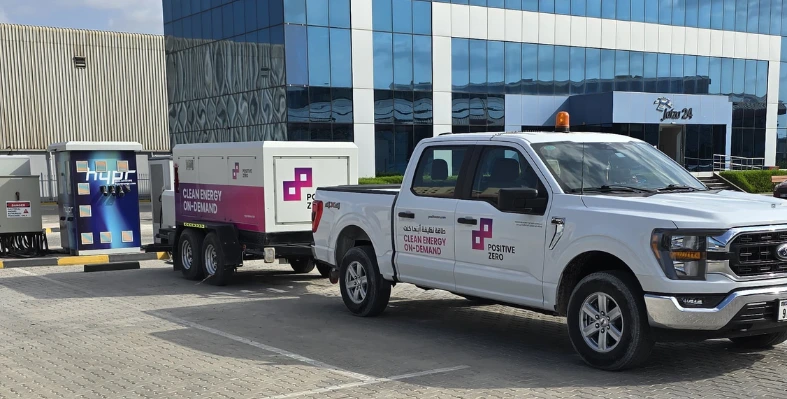In a conversation with Technical Review Middle East, Stanislav Betin, the general manager of HYPR Energy, a Positive Zero company, provided an in-depth overview of their innovative mobile battery system designed to power construction sites. A key focus was how these batteries are powered by renewable energy.
Betin explained the evolution of their electric power unit (EGPU), starting with a 175 kWh battery and upgrading to a 423 kWh battery mounted on a trailer. As he noted, "It's very mobile. We can bring it anywhere. We can mobilise the site within three to four hours." This mobility is a crucial advantage, allowing the system to be quickly deployed at construction sites.
A major selling point of the HYPR Energy solution is its sustainability. Betin emphasised that the system is "zero noise emitting, zero CO2 emitting" and often cheaper than traditional diesel generators. He explained how the company leverages its access to solar infrastructure, stating, "We also couple this product with our access to solar infrastructure across Dubai. We have 500+ different projects, and we are using the credits from those projects, which are accumulated over time. And we use those credits about the batteries. So we try to have this like a circular economy, omitting CO2 emission at every possible stage."
A data-driven approach
The real-time monitoring and fleet management capabilities of the system were also highlighted. As Betin noted, "Every element of our system, either the charger, battery, a port, even a truck, is IoT connected. So we see the real time location, and we also see all the key parameters for that specific element, like the state of charge and state of health." This data-driven approach allows the company to optimise operations and predict maintenance needs.
Betin acknowledged that the company faces some challenges in scaling up and quickly introducing their mobile battery system to the market. As he explained, "The challenge currently is the speed at which we should introduce the batteries to the market.”
Whenever peak power is required, the battery can sustain up to 250 kilowatt output
He noted that the temporary nature of construction sites requires frequent demobilisation and remobilisation of the battery systems, which adds complexity compared to more permanent solar installations. Betin said the company is working to address this by targeting clients with longer-term construction projects, up to 28 months, to provide more consistent service.
Despite these challenges, Betin expressed confidence in the company's ability to scale up, stating their plans to expand the battery fleet significantly this year, with new batches arriving in the coming weeks. He emphasised the strong demand they are seeing, driven by the booming construction sector and companies' focus on sustainability targets.







